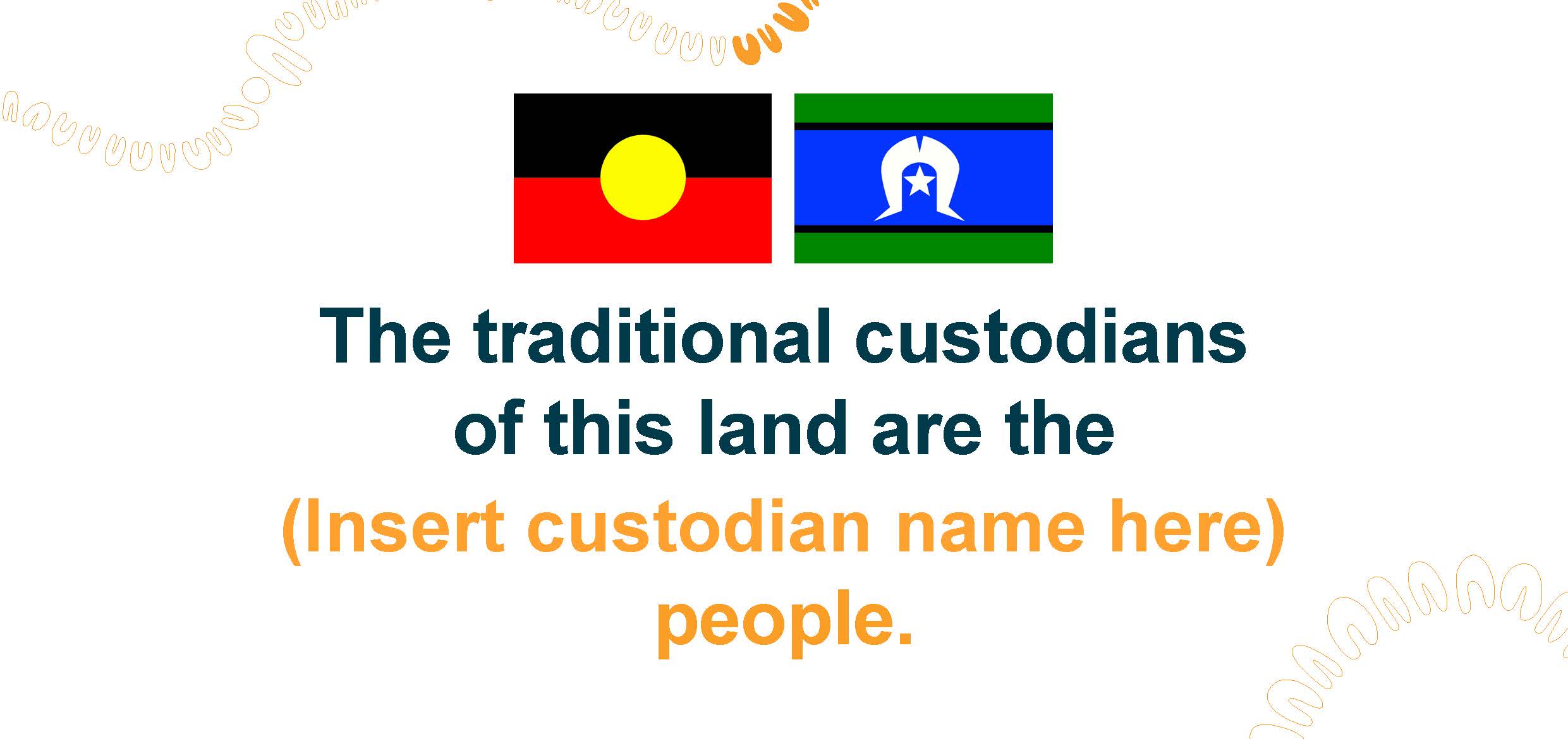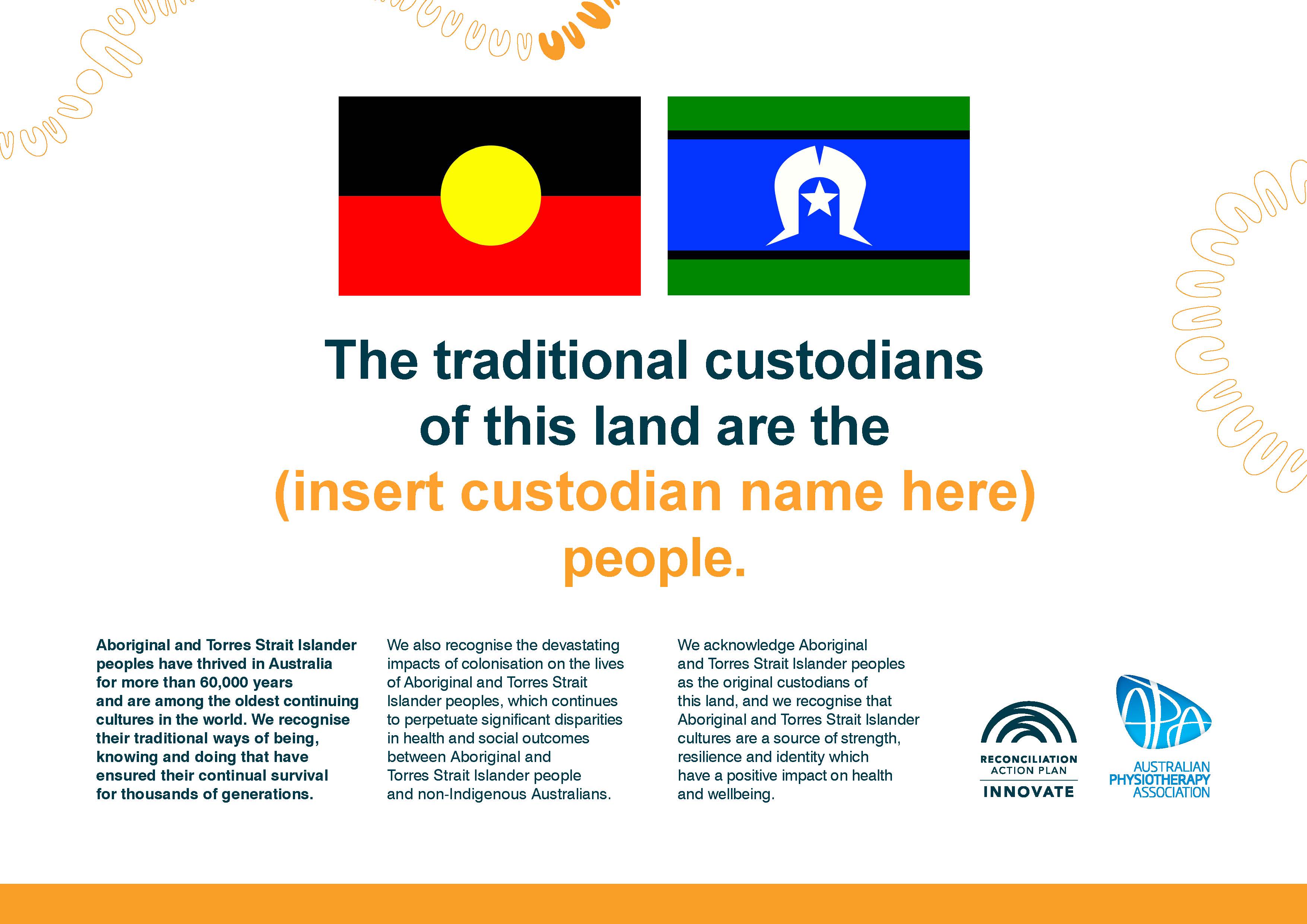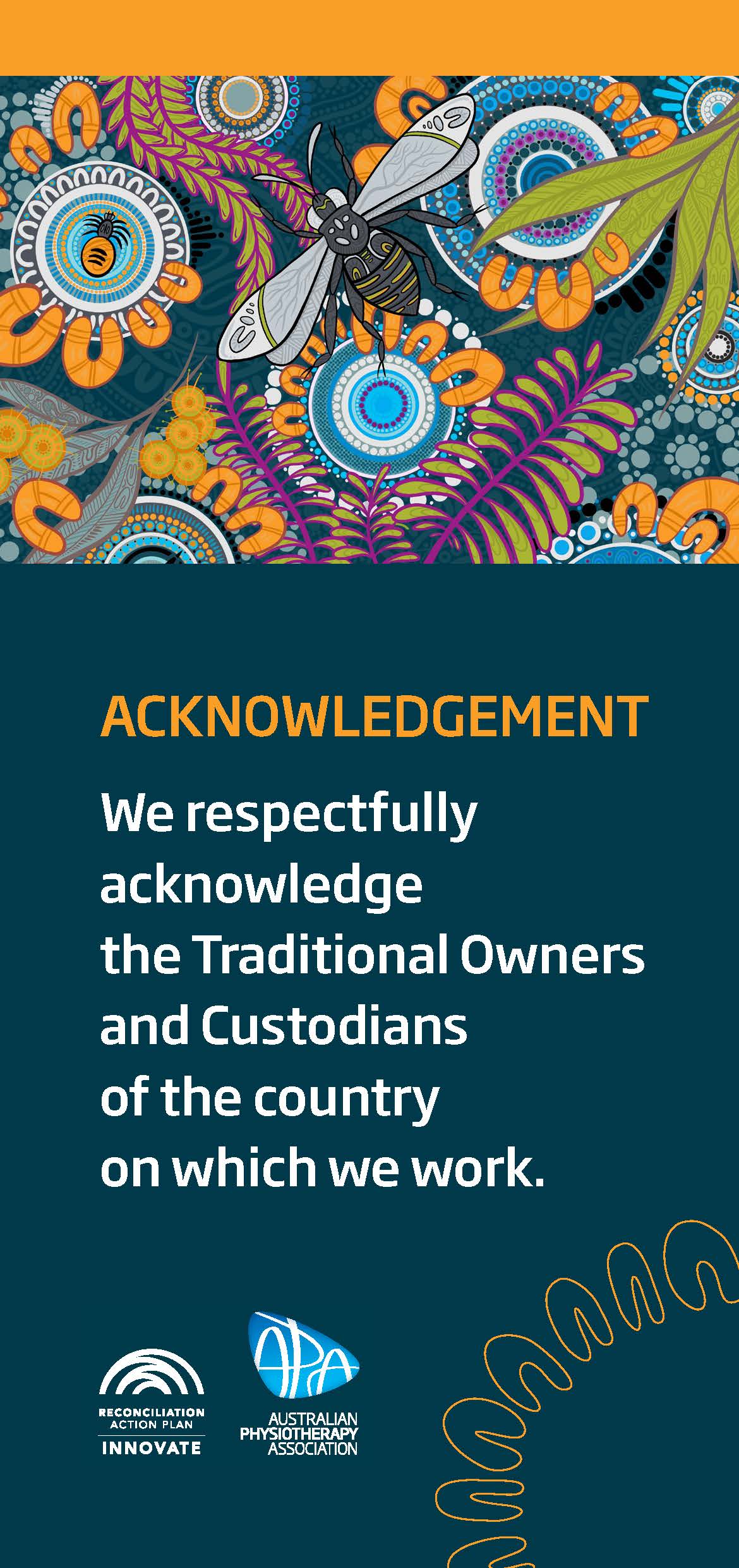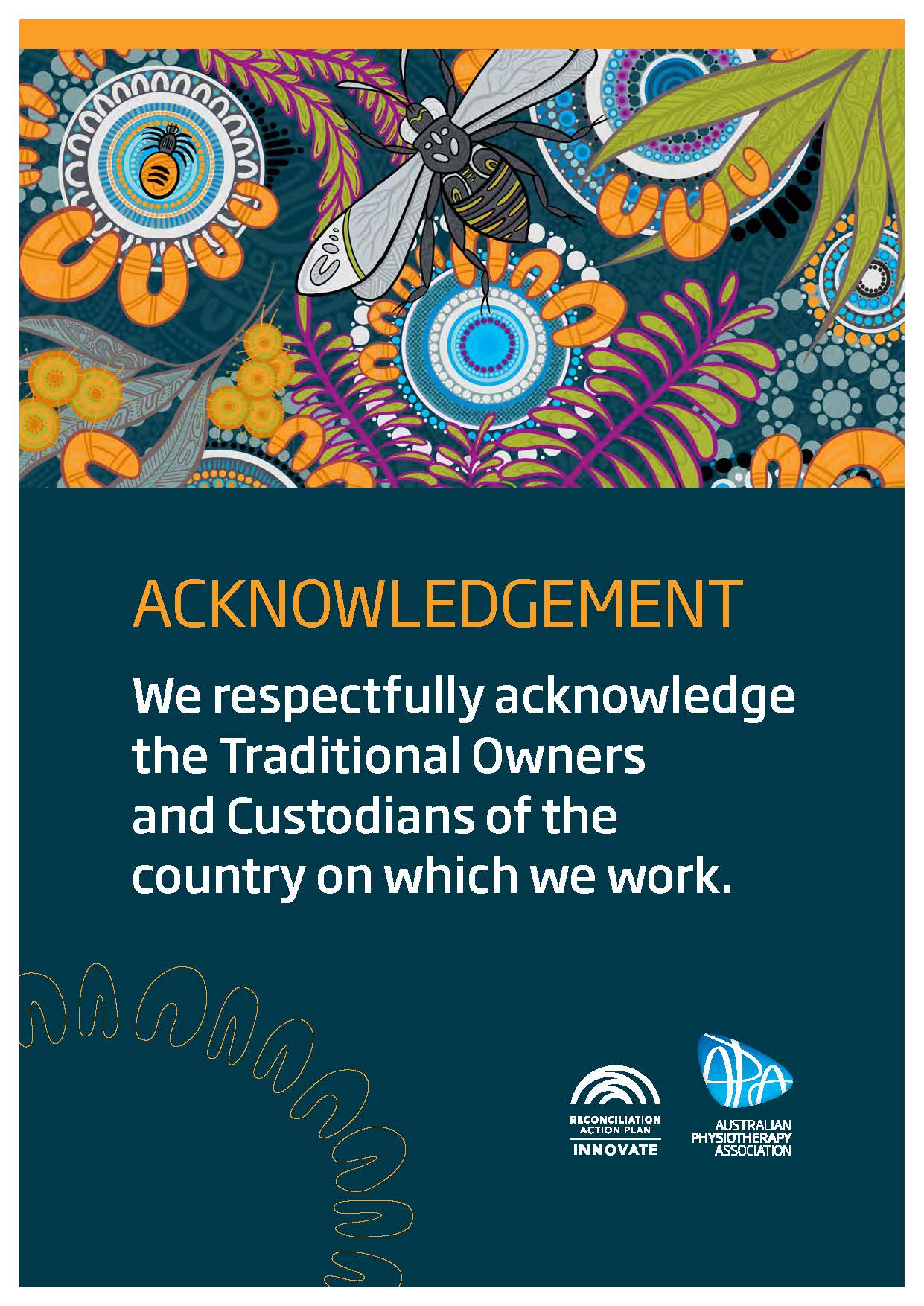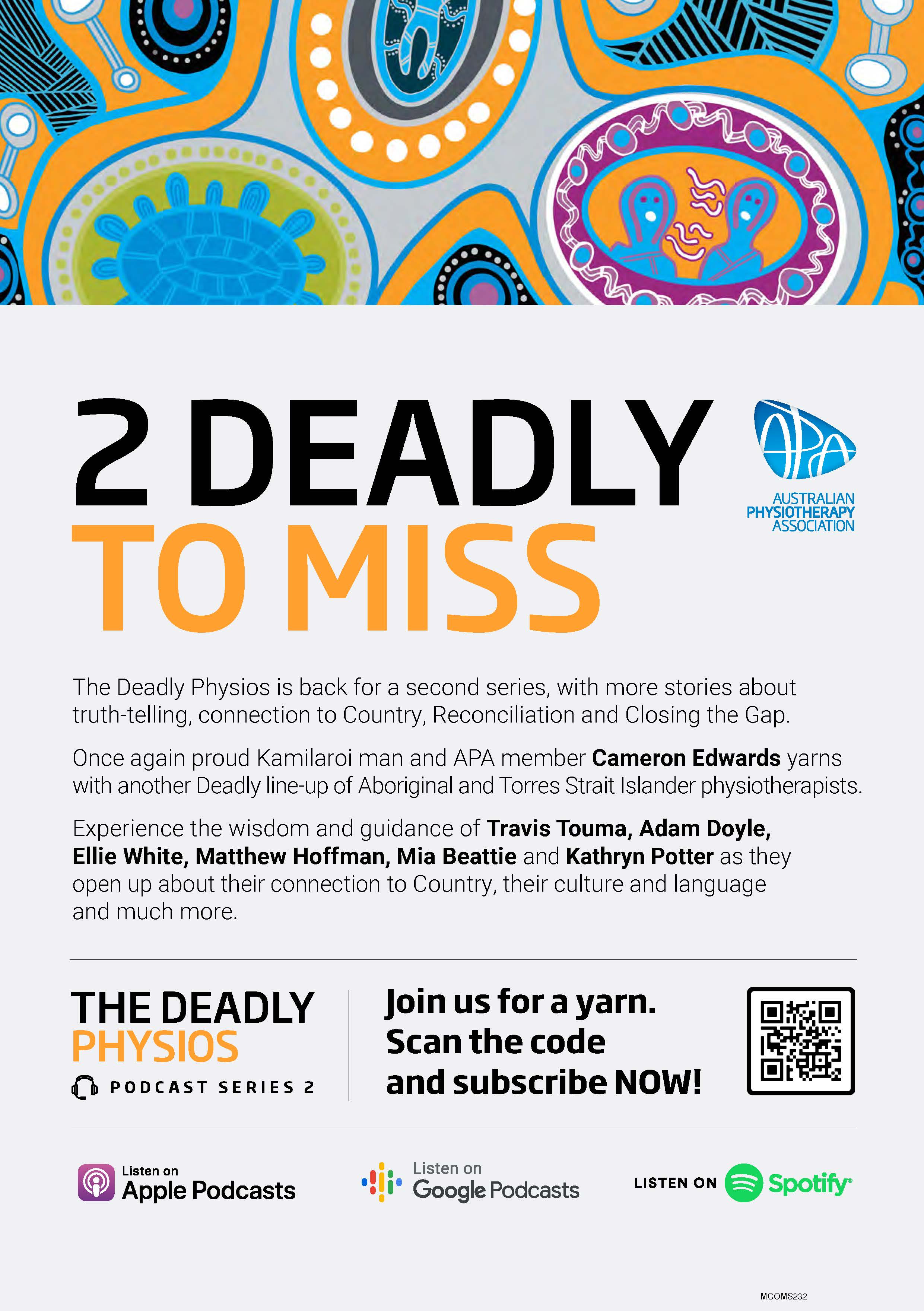Our vision for reconciliation
The APA’s vision for reconciliation is for all Australians to value and recognise Aboriginal and Torres Strait Islander cultures, knowledge, expertise, connections to land and sea and traditional ways of healing, and for stronger relationships between Aboriginal and Torres Strait Islander and non-Indigenous Australians based on trust, respect, and free of racism.
The APA is working towards this vision by continuing our efforts to create a more culturally safe physiotherapy profession and enhancing the representation of Aboriginal and Torres Strait Islander people within the profession. We encourage and recognise cultural bravery in our various roles as health professionals, experts, researchers, educators, advocates, and collaborators. We are striving to become an industry leader in advancing reconciliation in Australia and we support our staff and members along their own reconciliation journeys, which in turn, will support broader collective efforts towards reconciliation in Australia.
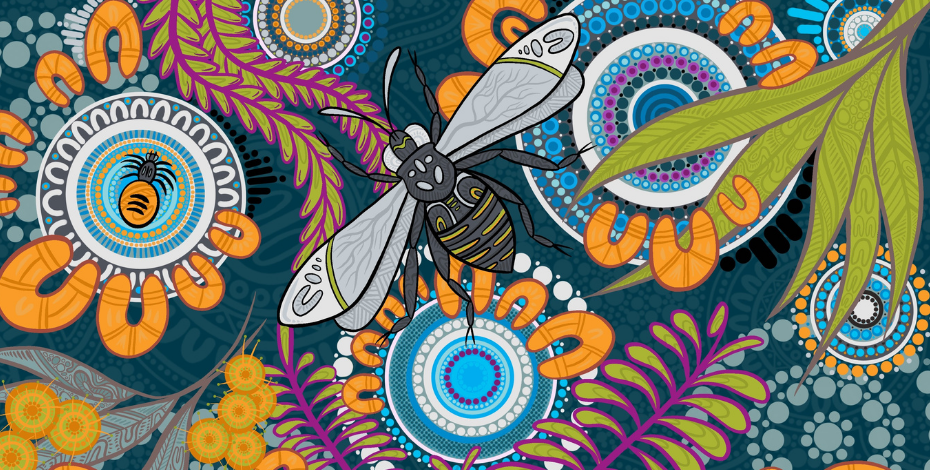
Progress made so far
Since beginning our reconciliation journey, the APA has undergone a significant cultural shift and we continue our efforts to embed reconciliation in all our practices. While we have achieved some level of success we recognise that there is much more we can do. Below are a few highlights that we have achieved through our RAP:
- Continuation of the Deadly Physios podcast show, which aids in truth telling, listening and cultural bravery.
- Offering of conference bursaries to support Aboriginal and Torres Strait Islander physiotherapy students and early-career physiotherapists to attend the annual APA physiotherapy conferences.
- Offering scholarships to support Aboriginal and Torres Strait Islander physiotherapy students throughout their study.
- Offering scholarships to support Aboriginal and/or Torres Strait Islander physiotherapists to undertake the Australian Institute of Company Directors (AICD) Company Directors Course or Foundations of Directorship Course.
- Sponsoring annual APA membership and national group sponsorships for a number of Aboriginal and Torres Strait Islander physiotherapists.
- Established an Aboriginal and Torres Strait Islander resource hub on the APA website.
Reconciliation Action Plan – Innovate 2022-2024
At its core the third RAP, Innovate 2022-2024, presents practical steps on how the APA and the physiotherapy profession can actively contribute to reconciliation in Australia, and facilitate opportunities for enhanced health and life outcomes for Aboriginal and Torres strait Islander people. Innovate 2022-2024 was developed to reflect our continuing aspiration for equality and equity for Aboriginal and Torres Strait Islander people in Australia. Our goal is to advance this ambition throughout the entire physiotherapy profession. We are working towards ensuring that the physiotherapy profession is culturally safe for Aboriginal and Torres Strait Islander professionals and patients, and that it is seen as a viable and aspiring career choice for Aboriginal and Torres Strait Islander people. Doing so, will ultimately contribute towards improved health outcomes for Aboriginal and Torres Strait Islander people.
Through Innovate 2022-2024, the APA is committed to:
Building stronger relationships
The APA recognises that strong relationships with Aboriginal and Torres Strait Islander people are fundamental to achieving better health outcomes. Our goal is to develop and nurture mutually beneficial relationships with Aboriginal and Torres Strait Islander people, communities, and organisations, to ensure that our profession is culturally safe, and that we make a positive contribution towards reconciliation in Australia. We are committed to the health and wellbeing of all Australians, and we aim to ensure that Aboriginal and Torres Strait Islander people have equitable access to physiotherapy services.
Respecting Aboriginal and Torres Strait Islander cultures
We recognise that cultural respect is integral to social and emotional wellbeing, and consequentially to improvements in the health of Aboriginal and Torres Strait Islander people. Our goal is to promote and celebrate Aboriginal and Torres Strait Islander cultures, knowledge and values in a way that respectfully connects our staff and members with Aboriginal and Torres Strait Islander people and communities.
Creating opportunities
The APA values the experiences of Aboriginal and Torres Strait Islander physiotherapy professionals, and their contribution to the work and overall governance of the APA. We recognise the importance of a strong Aboriginal and Torres Strait Islander workforce, and we strive to support and grow the number of Aboriginal and Torres Strait Islander physiotherapists and the proportion of Aboriginal and Torres Strait Islander staff within the APA. The APA is also committed to increasing our supplier diversity to support improved economic and social outcomes for Aboriginal and Torres Strait Islander people.

